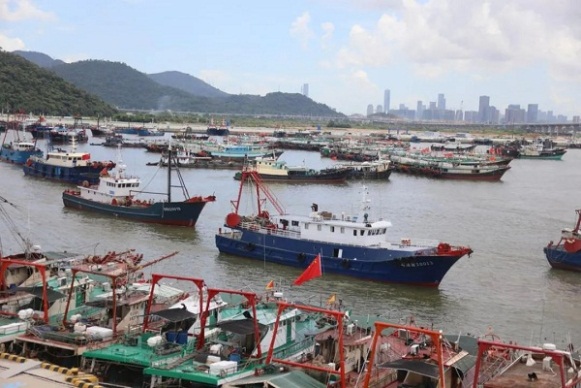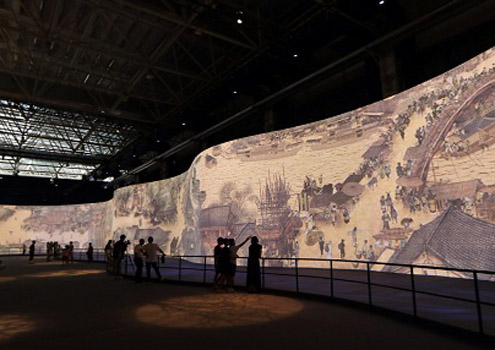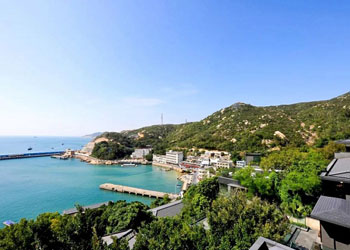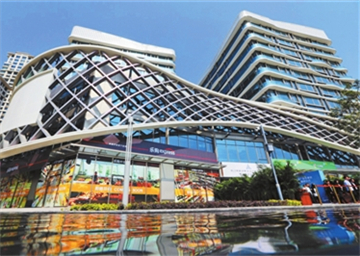Hongwan Fishing Port receives national title as central port
Zhuhai Hongwan Fishing Port was recently recognized as a national central fishing port after the on-site inspections by an expert team organized by the Ministry of Agriculture and Rural Affairs.
As the first fishing port to receive certification since the implementation of the "Coastal Fishing Port Grading Certification Measures (Trial)", Zhuhai Hongwan Central Fishing Port will become a benchmark for the construction, operation, and certification of fishing ports across the country.

Hongwan Central Fishing Port. [File photo by Wu Changfu / WeChat account: zhuhaifabu]
Hongwan Central Fishing Port enjoys convenient transportation, with well-developed infrastructure and complete supporting facilities for living and production.
Located at the intersection of the Modaomen and Maliuzhou waterways in southwest Zhuhai, the port is situated in the hinterland of the Guangdong-Hong Kong-Macao Greater Bay Area. To the east, it is connected to Hong Kong and Macao by the Hong Kong-Zhuhai-Macao Bridge. To the west, multiple expressways radiate to the vast western Guangdong, providing convenience for transporting and selling fishery products.
The fishing port covers a total area of 720,000 square meters (178 acres) with a shoreline of 2,630 meters (1.6 miles). It has completed the construction of facilities such as the shelter center, material supply center, cold storage warehouse, auction hall, and aquatic product trading center.
The fishing port was completed and opened on Dec 29, 2018, and officially took over the fishing industry functions of Xiangzhou Fishing Port in August 2019. It has gradually developed into one of the main fishing ports for fishing vessels and fish distribution in the Pearl River Estuary. In May 2021, it was awarded the title of "National Civilized Fishing Port."
In the future, Zhuhai will utilize Hongwan Central Fishing Port as a platform for promoting the construction of a national-level fishing port economic zone.
By gradually improving its industrial layout and accelerating the construction of the Greater Bay Area Seafood Trading Center, the fishing port will be built into a central fishery hub.



